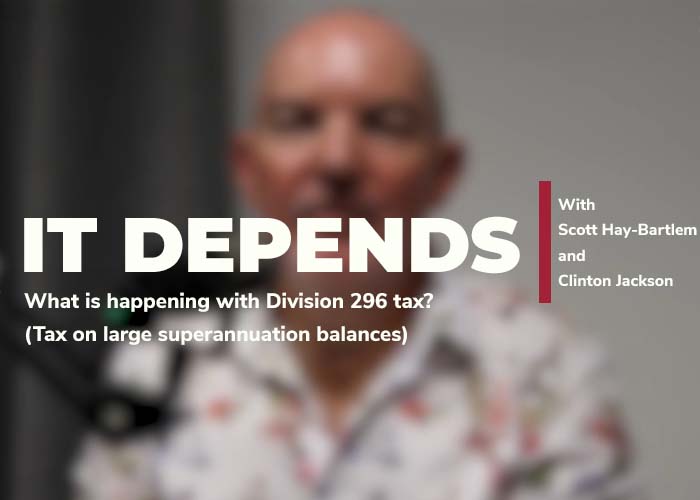Consequential loss has generally been described by the courts as loss that is beyond the ‘normal measure’ of damages.
Interpreting the meaning of consequential loss is largely informed by the terms of the relevant contract, which, if not clear, can make recovery difficult.
Remaining silent on the parties’ consequential loss rights and obligations (a common feature of unamended standard format style contracts) can add to those difficulties.
Should a consequential loss clause be included and what should it cover?
Provisions to exclude or limit consequential loss to protect against potential unlimited liability may be tailored to suit a particular transaction.
While consequential loss claims may include loss of profits, loss of opportunity or loss of goodwill, the types of loss best captured by consequential loss drafting will depend on the nature of the transaction and the circumstances surrounding the parties.
Key issues to consider when drafting for consequential loss are explored below.
Defining consequential loss
The state courts have taken different approaches to defining the meaning of consequential loss and, until the issue comes before the High Court, the meaning will likely remain a grey area.
In 2008, the Victorian Court of Appeal in Peerless determined that any loss beyond ‘normal loss’ (provided it was not too remote) could be recovered.[i] When describing ‘consequential loss’, the Court made reference to lost profits and expenses, but did not specify whether such losses applied to the meaning of consequential loss in all contractual agreements, or only if relevant to the circumstances of the case. The principles in Peerless have been followed in both New South Wales and South Australia.[ii]
Subsequent decisions in Western Australia have determined that the categorisation of loss as consequential is heavily context dependent; losses such as lost profits and expenses do not always fall outside the ‘normal measure’ of damages,[iii] and the decision in Peerless did not establish an ‘inflexible rule’ about what constitutes consequential loss.[iv]
The remaining states and territories have not directly considered the issue post Peerless – so it remains open as to what these jurisdictions will find is the preferred approach.
The practicalities
Relying on catch-all drafting to exclude consequential loss, or including a general reference to consequential loss without a corresponding definition, is risky. Depending on the nature and context of the contract, a court may not consider that losses, such as economic loss and lost profits, are consequential. Where consequential loss is referred to in a contract, including a corresponding definition is imperative for certainty of meaning.
Key takeaway: best practice dictates that parties should be clear and precise regarding allocation of risk by stating what is or is not included in the meaning of consequential loss. Avoiding ambiguity limits room for disputes. Allowing the courts to decide may lead to an unfavourable interpretation.
Consequential loss – exclude or limit?
There are various options for dealing with consequential loss, which include the following:
- Allow the contract to remain silent as to consequential loss claims – in which case the common law will apply. Some standard form contracts, such as those issued by Standards Australia, provide warnings that the general conditions do not operate to limit the liability of the parties for such losses, as a prompt to consider and include appropriate drafting if necessary.
- Wholly exclude liability for consequential loss – the party more at risk of being liable (often the contractor) may benefit from a blanket exclusion.
- Exclude liability for consequential loss, except in specific circumstances – the party more at risk of suffering loss (often the principal) may benefit from a carve out of exclusions for consequential loss. For example, the limitation will not apply where the loss is caused by the other parties’ criminal act or where the loss would have been insurable but insurance was not maintained as required under the contract.
- Limit liability by capping the amount for which a consequential loss claim may be made – if significant consequential losses may occur, an agreed cap to balance risk may be agreed. The other party is still entitled to claim for consequential loss, but only up to the agreed cap.
Unfair contract terms
Regard must also be given to the unfair contract terms regime under the Australian Consumer Law. There is no definitive guidance from the courts or the ACCC about when or if such clauses are unfair. However, it is possible (depending on the nature of the contracting parties) where standard form contracts are involved that the parties may encounter problems if the clause attempts to wholly exclude, limit, or cap the liability of one party while the other party is still at risk. This may be the case even if the parties have similar bargaining power.
Key takeaway: consider the required effect of any exclusion or limitation and include specific drafting to accommodate the agreed terms. Avoid clauses that significantly (or only) favour or preclude the rights of one party.
Insuring against consequential loss
Before committing to consequential loss obligations, it is imperative to check with your insurer as to whether this risk can be covered. Where insurance cover is available, there may be limitations and you may pay a higher premium.
Key takeaway: review your insurance policies and discuss with your insurer; this will help to inform the terms of consequential loss rights and obligations under negotiation and the risk you may be taking on as a result.
Final takeaways for parties to construction contracts
Parties are reminded to exercise caution to ensure that any attempt to exclude or limit liability is as clear and unambiguous as possible. Do not assume a general reference to consequential loss is sufficient and consider carefully clauses that only seek to benefit one party.
To avoid doubt about the scope and enforceability of consequential loss provisions that apply to you, we recommend you seek legal advice.
If you have any questions or concerns as to the best treatment of consequential loss for your circumstances, please contact a member of our construction legal team.






